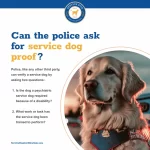Can Older Dogs Get Parvo Even If Vaccinated
Can Older Dogs Get Parvo Even If Vaccinated? The Truth Revealed
When you bring home a new puppy, one of the first things you’ll do is get them vaccinated. In particular, you’ll want to make sure they’re protected against parvovirus (parvo). This highly contagious disease can be fatal for puppies and young dogs who haven’t been vaccinated. But what about older dogs? Can they still get parvo even if they’ve been vaccinated in the past?
The short answer is yes, older dogs can still get parvo even if they’ve been vaccinated. However, the risk of infection is much lower for dogs who have received their vaccinations.
Parvo is caused by a virus that attacks the lining of a dog’s intestines. It can also attack the heart muscle in very young puppies. Symptoms include vomiting, diarrhea, lethargy, and loss of appetite. The virus is extremely hardy and can survive in the environment for months or even years.
Vaccination is the best way to protect your dog against parvo. Puppies should receive their first vaccination at around 6-8 weeks of age, with booster shots given every 3-4 weeks until they’re around 16 weeks old. Adult dogs need a booster shot every year to maintain their immunity.
But even if your dog has been vaccinated against parvo, there’s still a chance they could contract the disease. This is because no vaccine provides 100% protection. In addition, as dogs age, their immune systems may not be as robust as they once were, making them more susceptible to infections like parvo.
That said, the risk of an older dog contracting parvo is relatively low compared to that of an unvaccinated puppy. If you keep your dog up-to-date on their vaccinations and practice good hygiene (such as washing your hands after handling other dogs), you can minimize their risk of infection.
It’s also worth noting that some breeds of dogs are more susceptible to parvo than others. For example, Rottweilers, Doberman Pinschers, and American Pit Bull Terriers are all considered high-risk breeds. If you have one of these breeds, it’s especially important to make sure they receive their vaccinations on schedule.
If you suspect your dog may have contracted parvo, it’s important to seek veterinary care right away. The virus can quickly become life-threatening if left untreated. Your vet will likely perform a physical exam and run tests to confirm the diagnosis. Treatment typically involves hospitalization, IV fluids, and antibiotics to prevent secondary infections.
In conclusion, older dogs can still get parvo even if they’ve been vaccinated in the past. However, the risk of infection is much lower for dogs who have received their vaccinations. By keeping your dog up-to-date on their vaccinations and practicing good hygiene, you can minimize their risk of contracting this potentially deadly disease. And remember, if you suspect your dog may have parvo, seek veterinary care immediately ¨C early treatment is key to a successful recovery.



